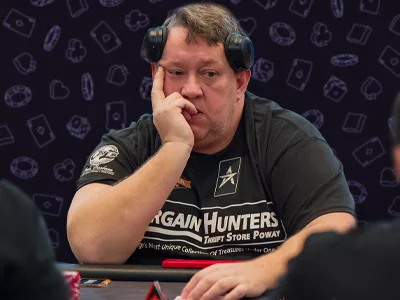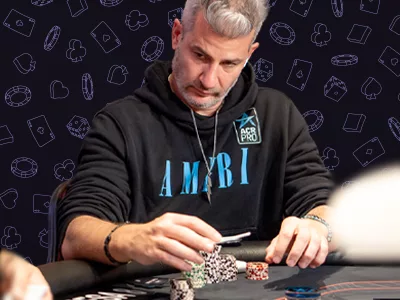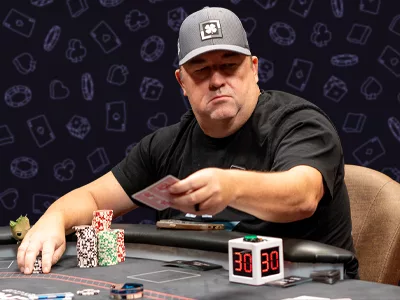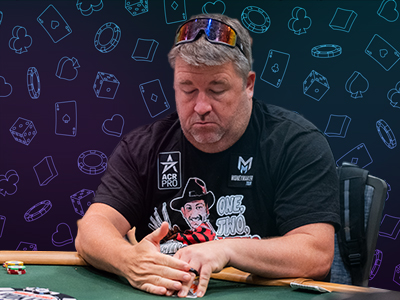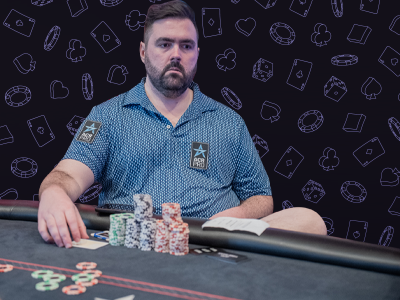Knowing when and how to muck can protect strategy and prevent costly mistakes at the table Mucking is a crucial part of Texas Hold’em, yet it is often misunderstood. Many players believe myths about mucking that can lead to costly mistakes at the table. Understanding the truth behind these misconceptions can help improve decision-making and
Tag: Texas Holdem
Adapting Heads-up Texas Hold’em Strategies in Real-Time
Constant adaptation is what separates strong heads-up players from the rest Playing heads-up Texas Hold’em requires quick thinking and the ability to adjust strategies in real time. Unlike full-ring or six-max games, heads-up play is dynamic, with each hand offering new opportunities to exploit an opponent’s tendencies. Adapting effectively can mean the difference between winning
Finding the Right Playing Balance With Small Pocket Pairs in Texas Hold’em
Balancing aggression and passivity is key to maximizing the value of small pocket pairs Playing small pocket pairs in Texas Hold’em requires a careful balance between aggression and caution. While these hands have the potential to turn into strong holdings when they hit a set, they can also be challenging to play profitably, especially against
Basic Principles of Mucking in Texas Hold’em for New Players
While mucking is a simple action, mastering when to do it is an essential skill Mucking is a fundamental part of Texas Hold’em that every player should understand. It refers to discarding a hand without revealing it, either voluntarily or when forced to fold. While it may seem straightforward, knowing when and how to muck
Reading Tells and Behavioral Patterns in Heads-up Texas Hold’em
By staying observant and flexible, you can gain the upper hand in heads-up Texas Hold’em battles Success in Heads-Up Texas Hold’em often comes down to reading an opponent’s tells and recognizing behavioral patterns. With only two players at the table, every action becomes more meaningful, and small details can reveal valuable information about an opponent’s
Whether or Not To Go All-in With Small Pocket Pairs in Texas Hold’em
Evaluating position, stack size, and opponents’ tendencies is crucial before making the move Deciding whether to go all-in with small pocket pairs in Texas Hold’em depends on several factors, including position, stack size, and opponent tendencies. While pocket pairs can be strong preflop, they are often vulnerable postflop, making the decision highly situational. Small pocket
What It Means to Muck in Texas Hold’em
Knowing when to muck can impact how opponents perceive your strategy In Texas Hold’em, the term “muck” refers to both the act of folding a hand and the pile of discarded cards during a game. Mucking typically occurs in two key situations: when a player folds their hand during a betting round or when they
Understanding Implied Odds for Small Pocket Pairs in Texas Hold ’em
Careful evaluation of potential future winnings is necessary to turn these hands into winning plays Implied odds play a crucial role in Texas Hold ’em, especially when deciding whether to call a preflop raise with small pocket pairs. Unlike direct pot odds, which focus only on the immediate risk versus reward, implied odds consider potential
How to Leverage Position in Heads-up Texas Hold’em Matches
By applying pressure and adjusting to opponent’s tendencies, you can maximize your edge in heads-up matches Position is one of the most important factors in heads-up Texas Hold’em. Since there are only two players, every hand consists of one player acting first and the other acting last. Understanding how to take advantage of position can
Setting Limits and Choosing the Right Stakes in Texas Hold’em
When it comes to winning at Texas Hold’em, the top players understand that establishing limits and choosing appropriate stakes are essential. If you’re grinding cash games or jumping into a tournament, you’re not successful because you’re familiar with the game—you’re successful because you’re making smart decisions with your bankroll and playing at stakes where you
The Importance of Being Aggressive in Heads-up Texas Hold’em
Being aggressive doesn’t mean playing recklessly, but rather controlling the game’s momentum Being aggressive in heads-up Texas Hold’em is one of the most important factors in gaining an edge over an opponent. Since there are only two players in the game, blinds come around quickly, and waiting for premium hands is not a viable strategy.
Bankroll Management During Bubble Situations in Texas Hold’em
Staying patient, avoiding desperation and recognizing when to take calculated risks ensures a stable bankroll Managing a bankroll effectively is crucial in Texas Hold’em, especially during bubble situations when tournament survival is at stake. The bubble is the stage where only a few players need to be eliminated before reaching the money. This phase requires

